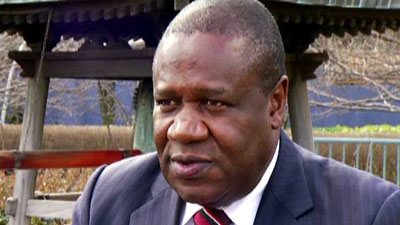South Africa’s transition to democracy in 1994 also ushered in the official readmission of the country to international fora.
Whether it’s in the sporting arena or multilateral organisations like the United Nations where the country had since 1974 been excluded from the work of the General Assembly over its racist policy of Apartheid, the UN was not a happy place if one were a South African diplomat prior to 1994. And although it took decades to impose tangible measures against the Apartheid government, which only really began to have teeth in the70s and 80s, the isolation of the country’s diplomats would begin as early as the mid-1960s. A South African Ambassador would be seen in the delegates lounge, sitting by himself, with very few diplomat colleagues going over to say hello.
During Nelson Mandela’s first visit to the UN in 1990, on his inaugural trip to the US after his release, the doors were flung wide open for the ANC’s then Deputy President, who addressed the UN’s Committee against Apartheid at a sitting of the General Assembly.
It will forever remain an indelible blight on human history that the Apartheid crime ever occurred in SA. It will forever remain an accusation and a challenge to all men and women of conscience, that it took as long as it has before all of us stood up to say enough is enough.
South Africa’s current Ambassador to the UN, Kingsley Mamabolo, reflects on a time when a clear crime against humanity was a battle of national agendas.
He says that there was a lot at stake at the time. “You’re recall this was at a time during the cold war and so on and we had people actually saying SA is a friend in the battle and the agendas that they were pursuing, that look if you were to choose amongst those who were waging struggle and those who were supporting Apartheid, maybe in this battle that were having, much bigger battle in so far as they were concerned, the cold war, we’d rather opt for these ones,” says Mamabolo.
He says that in fact they were ready to trample on the human rights of people to achieve that because they knew those who supported the apartheid regime, were supporting a illegitimate regime that was doing a lot of harm to the people.
“With the country’s first democratic election and the inauguration of Madiba as president, South Africa was allowed to once again proudly take her seat among the community of nations,” he says.
It’s about the national agenda of other countries and they’re protecting their interests
Mamabolo believes the country is highly respected due to its struggle background.
“When we speak to those issues be it peace and security, be it human rights, be it about socio economic development, be it about eradication of poverty, be it about the fairness in the international systems, the reform of the UN, the reform of the Brettonwood institutions and so on, people know that we genuinely mean it, we mean it because we had been on the receiving end at some stage, of all these injustices that we see today being perpetrated against other countries and so because of the principles positions that we hold, because of the values, because when we said we’re fighting apartheid, we didn’t mean we’re fighting it only for the people of South Africa, we knew that we were fighting for an unjust thing that is happening wherever it occurs and that we would be ready to defend it wherever”, says Mamabolo.
Since 1994, the country has strongly advocated rules-based multilateralism, currently holding a seat in the UN’s Economic and Social Council while completing a third term in Human Rights Council in Geneva. South Africa has also completed two terms as a non-permanent member of the Security Council, first in 2007 and most recently in 2011.
The issue of reforming the UN, particularly the Security Council, has been made up a substantial part of the country’s agenda at the UN since 1994, a matter first raised by Nelson Mandela and every other president since. Ambassador Mamabolo believes that like Apartheid at the UN, this is not an easy fight.
He says that it’s about national agenda of other countries and they’re protecting their interests. “They have enjoyed some of them the ability to dominate the world by taking decisions and so would not want to let go that easily some of them, and so you create a whole lot of problems in sort of acceding to this very genuine request, he says.
The country received further endorsement of its new status at the UN with the appointment of South Africa Judge, Navi Pillay as High Commissioner for Human Rights in 2008 and former deputy president, Phumzile Mlambo Ngcuka as only the second Executive Director of UN Women.
A ringing endorsement of a country and her people, after decades of more cold shoulders than firm handshakes.
– By


